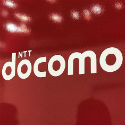
NTT DoCoMo has finally walked away from Bangladesh.
The Japanese telco acquired a 30% share of Robi for $350 million 12 years ago, subsequently diluting it to 8% because of unhappiness with tax and regulatory issues.
Now it has sold its 6.3% stake in Bangladesh's second-largest operator to Bharti Airtel for an undisclosed sum.
As a local newspaper put it, DoCoMo is leaving empty-handed.
It is not the only operator to give up on Bangladesh. Both Singtel and the Dhabi Group exited in frustration.
Yet DoCoMo seems have had a particularly wretched run in its efforts to expand beyond its home turf.
Just last year it divested its 24% holding in Hutchison Telecom Hong Kong for $60 million – a stake originally worth $410 million. It still holds 8.6% of Philippines' PLDT, the parent of mobile operator Smart Communications.
None of these makes a great deal of sense. A small stake yields little other than a seat on the board. The larger stake in Hutchison was supposed to be part of a play to take its then-groundbreaking imode technology to the world, but that didn't happen.
The even-larger stake in Robi was an expensive gamble on a notoriously difficult market.
If it's any consolation, it's not the worst foray abroad by an Asian telco.
That surely goes to Singtel in its 2006 attempt to buy Thailand's AIS, owned by the then-Prime Minister Shinawatra.
Singtel parent Temasek Holdings sought to acquire 49% of the company, but it ran into massive public blowback over Shinawatra's perceived conflict of interest, his avoidance of tax on the transaction and the idea of selling a key asset to a foreign sovereign investment fund.
The outcry culminated with the overthrow of Shinawatra in a military coup a few months later. Not the optimal outcome.
Despite this misstep, Singtel has just about written the book on how to build out a regional chain of telco businesses across wildly different markets. The group has 705 million customers and derives 79% of EBITDA from outside its home base.
Besides being the dominant shareholder in AIS, it has stakes in Globe Telecom in the Philippines, Telkomsel in Indonesia, Bharti Airtel in India and Singtel Optus in Australia. It would be hard to find a more varied group of markets and conditions.
As 5G comes into view, it's clear that these kind of skills – the ability to partner and build new businesses – will need to be core telco competencies.
As we can see, operators often struggle to partner with other telcos. Now the degree of difficulty has escalated.
For 5G, they must learn how to forge partnerships and build new businesses across numerous verticals – something they've never done, and certainly not in the B2B space.
Beyond all the chatter about 5G opportunities, the biggest challenge will be to build these new capabilities.
— Robert Clark, contributing editor, special to Light Reading
Read more about:
AsiaAbout the Author(s)
You May Also Like












